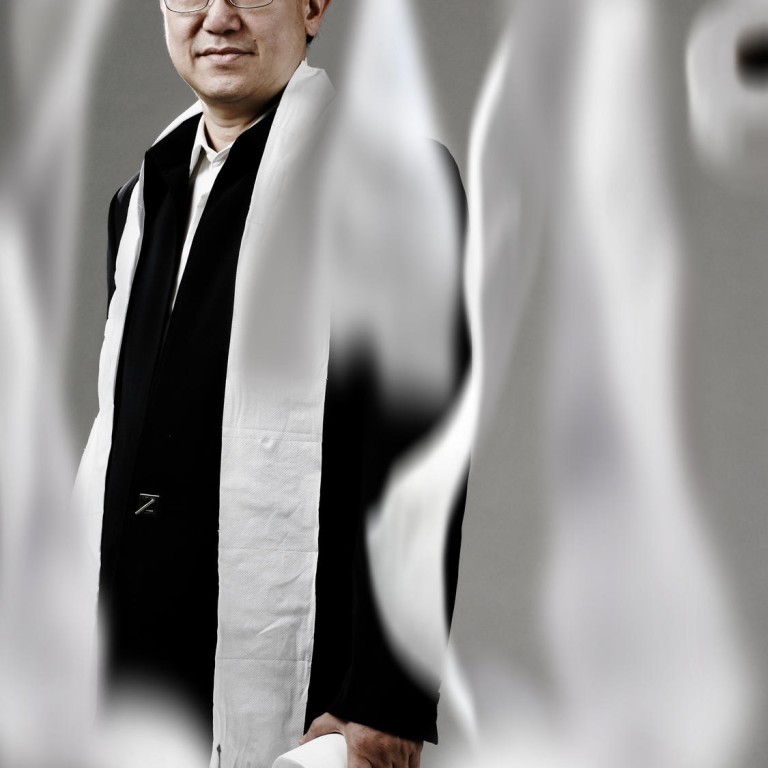
Thousands of toilets in Hong Kong, so no excuse for public peeing
Relieving oneself where one shouldn't can bring big fines, but relatively few are brought to book
Hong Kong is flush with publicly available toilets, the has found.
However, getting a handle on the problem of people relieving themselves in public is tricky, with police admitting they do not keep separate records of prosecutions and fines for such public nuisance offences.
"Finding toilets in Hong Kong is not really very difficult," said Leo To Chun-hong, 31, the director of Nuthon IT Solutions, which produced the popular lavatory-search application Toilet Rush.
The app relies on user-generated content and data provided by the government and has about 5,000 toilets on record. It has been downloaded well over 200,000 times since its first release in 2009.
Recent photographs and videos of young mainland children urinating and defecating in MTR stations, in shopping malls, and on busy streets have provoked harsh words on both sides of the border.
While illegal, public urination and defecation are not considered criminal acts, and the police say they do not maintain records of the prosecutions and fines.
Hong Kong's Public Cleansing and Prevention of Nuisances Regulation prohibits those in charge of a child under 12 from permitting the child, without reasonable excuse, "to obey the call of nature in any public street".
Offenders face fines of up to HK$5,000, while repeat offenders can be fined up to HK$10,000, according to a spokeswoman for the Food and Environmental Hygiene Department, which is also responsible for enforcing the city's law against relieving oneself in public.
About 570 of its foreman-grade officers and 2,200 members of its hawker control teams are charged with bringing offenders to book.
The department's figures would appear to suggest the problem is not widespread.
Each year from 2009 to last year, it prosecuted 10, five, six, 14 and 13 people respectively.
When offenders are tourists, however, it is unlikely they will be around when it is time to head to court to face the HK$5,000 fine.
"Maybe an instant fine is needed," suggested Jack Sim Ruihua, the founder of the World Toilet Organisation. "Hong Kong can introduce legislation to change that."
Hong Kong is not the only country to have a problem with public displays of urination. Paris saw its cobbled streets so saturated with pee that it took to hiring what it called the bad-behaviour brigade, a group of municipal officers who go around looking to book anyone heeding the call of nature on its streets.
Accessible toilets may not always be easy to find in Hong Kong. Some buildings, such as Alexandra House in Central, keep theirs under lock and key, while finding the bathroom in others requires negotiating the twists and turns of a shopping mall's innards to find them.
Toilet Rush is currently available to those with a data or Wi-fi connection and an iPhone platform. To is looking at making it compatible with Android phones, which are more commonly used on the mainland.
"The app is helpful, but there's always the option of asking someone to show you the way," To said.
World Toilet Organisation steps into public urination row
The WTO has now weighed in on the issue of public urination and defecation. No, not the World Trade Organisation, but the World Toilet Organisation.
"Public education at points of entry could be useful," said WTO's Singapore founder, Jack Sim Ruihua, following the controversy sparked by an online video of a mainland couple allowing their toddler to go to the toilet in a busy Mong Kok street.
"Make the message clear that people will die if they keep doing that," he said. "The flies will go to the poop and spread disease."
Sim said Hong Kong should help mainland visitors understand the importance of hygiene, and offered his organisation's help to create a memorable public education campaign.
With initiatives like the "Don't Eat S*** Campaign" and "Potty Parity", the WTO brings humour to a serious and, usually, little discussed public health issue.
Hong Kong, Sim said, was particularly sensitive to the issue of disease after the Sars crisis in 2003 - which killed 299 Hongkongers - and outbreaks of avian flu, among other epidemics.
Sim advised Hong Kong to enlist the help of celebrities for an aspirational campaign. "Something like, 'Toilet habits reflect your dignity'," he suggested. "Most people don't like to be disgraced. Make hygiene a status issue."
While the World Toilet Organisation sounds kooky, it is linked to serious players, like the United Nations Environment Programme, the Asian Development Bank and the Bill and Melinda Gates Foundation.
It has more than 200 members and its current chairman is a graduate of the school of foreign service at Washington's Georgetown University and Harvard Law School.
Sim said the issue in Hong Kong would not be fixed overnight as large parts of the mainland were still developing and people there were learning the importance of hygiene.
He added: "I am sure there are people from the mainland who don't act this way, who are upset that Hong Kong people are bundling them in with people who do.
"They will be scolding their own and that will be helpful."

